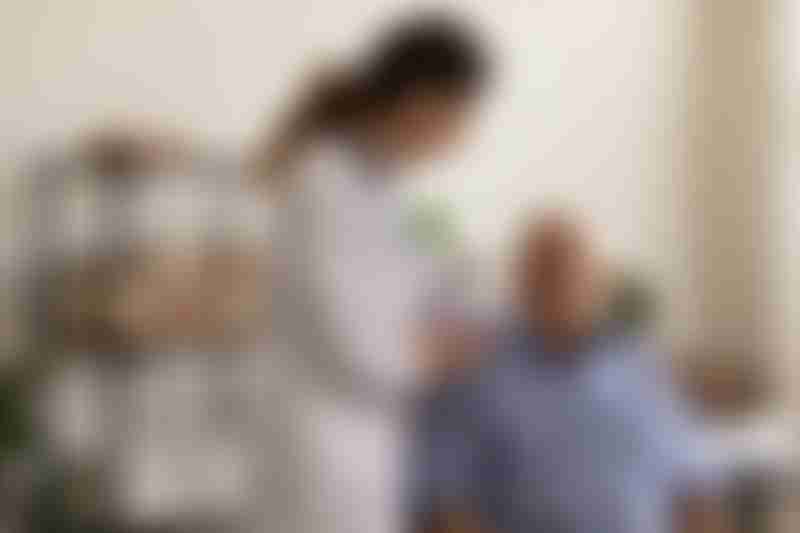After Your Prostatectomy: Care and Recovery

Source: Shutterstock
What to expect after prostatectomy
After your prostatectomy, some discomfort and pain is expected. Here are some common types you can expect and what you can do about them:
- Incision pain
While you are hospitalized, you should be able to request for pain medication as necessary from your care team. Upon your discharge, you will be prescribed pain-relieving medication to alleviate pain at home. Note that some pain medications are associated with constipation, and stool softeners may be provided to mitigate this.
- Bladder spasms or abdominal pain
After your surgery, you will likely have a catheter placed temporarily to allow you to urinate comfortably without interfering with your incision site. However, this may cause sporadic pain around your pelvis, or result in more frequent urges to urinate or pass stools. The inconvenience should be temporary, and will likely subside after your catheter is removed, up to 1 to 3 weeks after your surgery.
- Genital pain
After surgery, your penis and scrotum will likely be swollen or bruised. You may wish to prepare a small cushion to use when lying or sitting down to ease any pain around your genitals. A comfortable recliner or sofa may also help to ease the pressure on the incision area.
- Painful flatulence (passing gas)
Walking is recommended to help ease the removal of gas through your body, while a heat pad or hot herbal tea are also recommended to relieve the pain.
- Constipation
If you are facing issues with passing stools, you may need to take a stool softener until your bowel movements return to normal. If they do not return by the second night, you may need to take a laxative to clear your bowels. You should eat high-fiber food such as fruits, vegetables and whole grains to protect against this issue.
Learn more: Life After Prostatectomy
During your prostatectomy recovery
Generally, good advice to follow right after your surgery includes:
- Eating lightly until you’ve passed stools at least once
- Drinking at least eight glasses of water a day
- Showering a day after your surgery
- Walking around every two hours during the daytime, but avoiding strenuous exercise
- Avoiding swimming and driving until you get the go-ahead from your doctor
During your prostatectomy recovery, you or your caretaker will need to help with the following care required:
- Your surgery wound should be cleaned with soap and water every day.
Some blood or fluid may soak your gauze quickly, so you will need to change your wound dressing daily until there is no longer any drainage from your wound.
- You will need to keep your catheter clean to prevent any infections.
While it will be removed after seven to ten days, your temporary catheter would also need special care. You will need to wash around the catheter to remove any blood, build-up or mucus. Your anus should be washed last to prevent any bacterial transfer from your stool.
The catheter relies on gravity, and is meant to be draining urine all the time. It should always be kept below your bladder, even during showers. The bag should be emptied when half-full to prevent any air bubbles from blocking the tubing. If the drainage seems to be blocked, you can check the tubing for any obstructions or loops which may be the issue. You may need to empty the bag or reconnect the catheter to resolve it.
Do not be alarmed if your urine bag is light red or pink in color. Some blood is expected post surgery. The best way to monitor your urine color is to watch the freshly produced urine passing through your catheter’s tubing. However, you should note that if your urine is still bloody the day before your catheter removal, your removal appointment will likely need to be rescheduled.

Urinary catheter bag placement. Source: Shutterstock.
- If your doctor has used a drain for blood, pus and other infective fluids after your procedure, you will need to empty it regularly, as directed by your care team.
- You may have blood in your urine, or some urine leaking from your penis, so you may need to clean the tip of your penis.
You should keep the tip of your penis clean and dry, and make use of lubricating gel to ease any irritation. Soap and water can be used to clean the opening of your penis, using a clean cloth to wash it. You should hold the end of your catheter to prevent any dislodging during cleaning.
Things to look out for
Finally, you should contact your doctor immediately if you experience:
- Dark red, foul-smelling or persistently cloudy urine in your catheter bag
- Catheter unable to drain even after removing bends, air bubbles, and ensuring that the bag is below your bladder height
- Large blood clots blocking the catheter tubing, or in the bag
- Fever above 100.4°F
- Persistent chills
- Uncontrollable pain, or any new severe pain
- Excessive pus, swelling or bleeding from your incision
- Straining when urinating
- Swelling in one leg much more than the other
- Difficulty breathing
- Nausea and vomiting
- Hives or rashes
Altogether, your recovery from your prostatectomy may take up to a month, and you may feel more tired as your body goes through the healing process. Rest and a good diet coupled with light exercise is important to support a good recovery. As you recover, keeping a lookout for any signs of worsening complications will also help you to nip any possible issues in the bud.